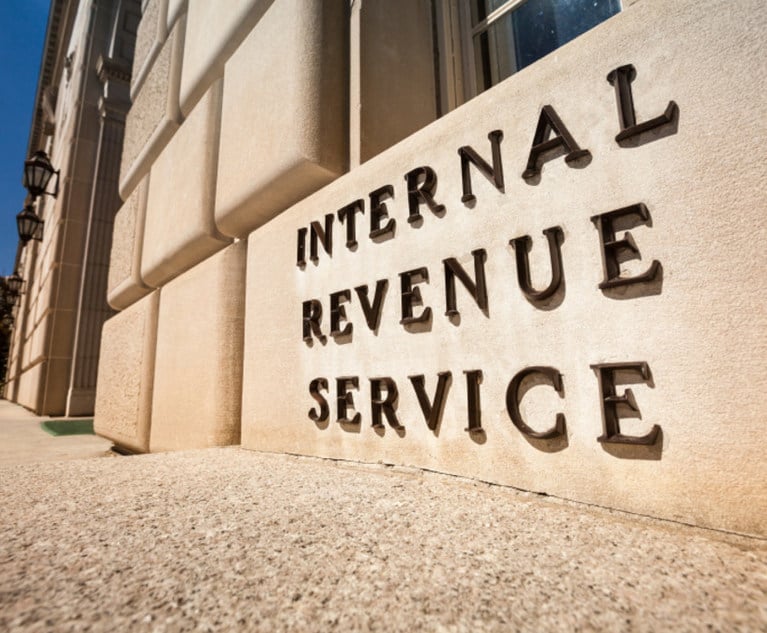Features

REITS Remain Optimistic In Face of DOGE Cuts
Publicly traded REITs remain optimistic in the face of potential widespread cuts to federal leasing at the hands of the Department of Government Efficiency because they serve agencies performing the work the Trump administration is prioritizing, including mission-critical agencies.
Columns & Departments

Development
Landowner Lacks Standing to Challenge Negative SEQRA Determination With Respect to Prohibition of Use On Its Own ParcelUDC’s Project Plan for Penn Station Area UpheldPlanning Board’s Grant of Site Plan and Special Permit Upheld
Features

Illinois Appellate Court Upholds Defense Counsel’s $21K In Attorneys Fees In Commercial Tenancy Dispute
A defense counsel’s award of over $21,000 in attorney fees in a commercial lease dispute was upheld in February by a three-judge panel for and Illinois appellate court, finding the plaintiff did not fully establish the shortfalls of the fee petition.
Columns & Departments

Eminent Domain Law
Condemnation Upheld Because It Did Not Interfere With Prior Public Use
Features

Effect of Trump’s Tax Plan on Commercial Real Estate
Many industry leaders, analysts, and pundits have broadly considered how the Trump administration’s and GOP-majority Congress’ plans might affect commercial real estate. The Deloitte Center for Financial Services looked at six key parts of the Tax Cuts and Jobs Act, which is set to expire by the end of this year, and the likely implications on domestic and global CRE.
Features

Lease Analysis Gives Win for Commercial Landlord In Bankruptcy Case
The Second Circuit ended a multi-year litigation by affirming a district court’s decision that a landlord’s appeal was “moot for lack of a remedy because, although [that] court [had properly] vacated the assignment and assumption of the lease …, the lease would not revert to [the landlord under Code] §365(d)(4), and that [the landlord] had no alternative remedy.”
Features

Real Property Sale Proceeds Must Be Used to Pay Unavoided Portion of IRS Tax Lien First
Given the downward pressure on commercial real estate valuations in many areas, and the increasing likelihood that owners of real property will cease paying real property taxes when there is no longer any equity, this article reports on a recent Ninth Circuit decision that reversed a decision of the bankruptcy court, affirmed by the district court, allocating the distribution of the proceeds of a sale of real property pro rata between the Internal Revenue Service on account of its tax lien, and the bankruptcy estate.
Features

Appellate Division First Department Declares Fee Mandate of Soho/Noho Rezoning Unconstitutional
This past December, the Appellate Division, First Department struck down a key provision of New York City’s recently amended Zoning Resolution.
Columns & Departments
Landlord & Tenant Law
Yellowstone Injunction Denied Because Failure to Procure Insurance Is an Incurable DefaultLandlord Bound By Agreement Setting Market Rent At Pandemic Levels
Columns & Departments
Co-ops and Condominiums
In Tax Foreclosure Proceeding, Condominium Board Entitled to Recover Only Those Common Charges Covered By Its LienProprietary Lease Gave Co-Op Authority to Mandate Removal of Whirlpool
Need Help?
- Prefer an IP authenticated environment? Request a transition or call 800-756-8993.
- Need other assistance? email Customer Service or call 1-877-256-2472.
MOST POPULAR STORIES
- The DOJ's Corporate Enforcement Policy: One Year LaterThe DOJ's Criminal Division issued three declinations since the issuance of the revised CEP a year ago. Review of these cases gives insight into DOJ's implementation of the new policy in practice.Read More ›
- The DOJ's New Parameters for Evaluating Corporate Compliance ProgramsThe parameters set forth in the DOJ's memorandum have implications not only for the government's evaluation of compliance programs in the context of criminal charging decisions, but also for how defense counsel structure their conference-room advocacy seeking declinations or lesser sanctions in both criminal and civil investigations.Read More ›
- Use of Deferred Prosecution Agreements In White Collar InvestigationsThis article discusses the practical and policy reasons for the use of DPAs and NPAs in white-collar criminal investigations, and considers the NDAA's new reporting provision and its relationship with other efforts to enhance transparency in DOJ decision-making.Read More ›
- Mixed Ruling in Jefferson Starship Band Name SuitWhat's in a rock band's name? Plenty, if you are talking about Jefferson Starship, which goes back more than 40 years, has had more than 30 members and was born from the 1960s psychedelic rock band Jefferson Airplane.Read More ›
- Strategy vs. Tactics: Two Sides of a Difficult CoinWith each successive large-scale cyber attack, it is slowly becoming clear that ransomware attacks are targeting the critical infrastructure of the most powerful country on the planet. Understanding the strategy, and tactics of our opponents, as well as the strategy and the tactics we implement as a response are vital to victory.Read More ›
